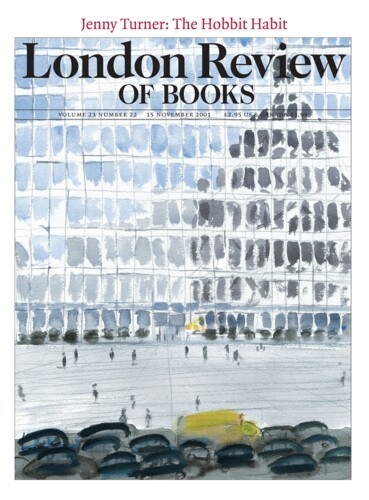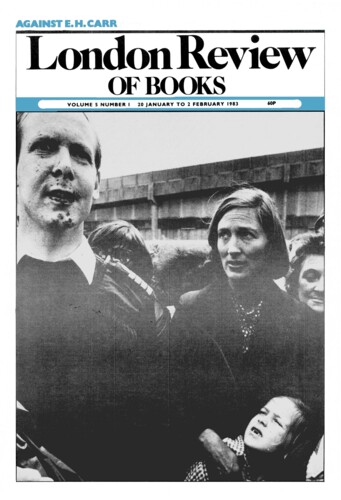Good Americans go to Paris when they die, but good Americans have always been few in number, so for a long time their impact on France was slight even when they were dead. ‘Who reads an American book, or goes to an American play, or looks at an American picture …?’ asked Baudelaire, perhaps echoing Tocqueville, with his premonition that the wonders and vulgarities of democracy in America were what awaited Europe. Tocqueville’s observations were to be quoted, misquoted, reiterated and rehashed in France for a century and a half. But the vulgarities caught the attention more than the wonders, and attracted especially the notice of those who, like most French until recently, preferred to take their exoticism at a distance. For Stendhal, American life was a bore without even opera to relieve it, and all passions there came down to dollars in the end. For Baudelaire, long before Henry Miller’s air-conditioned nightmare, the United States were a gaslit wasteland. The universal exhibitions held in Paris, with their monstrous displays of American machines and technological knowhow, added to the portentous image. Civilisation was clearly in peril and ‘Americanisation’ became a verb before it had time to become a reality. Pierre Larousse defined américanisme, Edmond de Goncourt deplored the Americanisation of France. Before typewriters, telephones and tin lizzies, mankind (meaning the French) was sliding down the honeyed slopes of philistinism and technical materialism. Before the 19th century ended, a professor of commercial studies was casting his stone at Le Péril américain.…
Seducing the French: The Dilemma of Americanisation by Richard Kuisel. Good Americans go to Paris when they die, but good Americans have always been few in number, so for a long time their impact on France was slight even when they were dead. ‘Who reads an...




